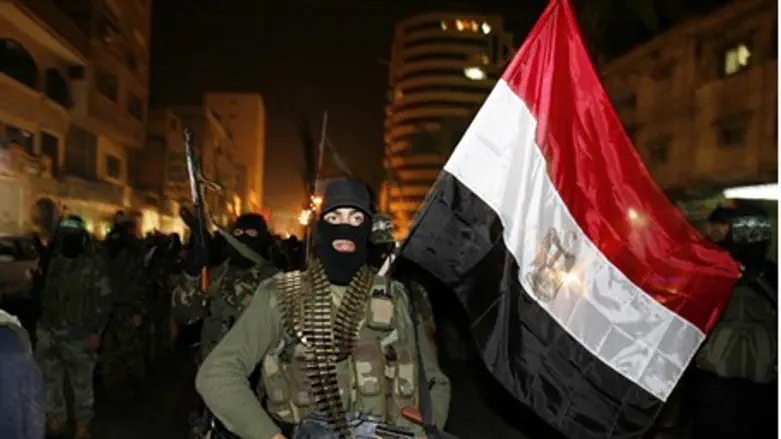
More than a third of Egyptians support the extreme Muslim Brotherhood movement, according to a new survey conducted by the Egyptian government’s media and decision-making support center.
The survey, the results of which were reported by the pan-Arab daily A-Sharq Al-Awsat on Wednesday, revealed that 35% of citizens support the Muslim Brotherhood while only 21% oppose the movement.
The survey found that 58% of respondents said they would not vote for a president who is not of their religion, but do not reject outright the option that they would vote for a vice president who is not of their religion.
It was also found that 73% of respondents believe that the Egyptian people are a religious people, but that 76% of respondents expressed support for the idea that the religious identity of a person would not be specified on his ID card.
In addition, nearly 80% of respondents think that relations between Christians and Muslims in Egypt are not a source of problems, while 50% believe that “external factors” are the source of the recent sectarian clashes in the country. It was reported this week that the number of Christians to have fled Egypt since March is approaching 100,000 and could reach 250,000 by the end of 2011.
On Tuesday, Egypt’s ruling military council announced that parliamentary elections will be held on November 28.
The election is expected to be held in three stages, which could take several weeks. Senate elections will follow starting on January 29.
Earlier this week, Egypt’s Foreign Minister Mohamed Amr downplayed concerns that a potential strong showing by supporters of the Muslim Brotherhood in parliamentary elections could pose challenges to the current government’s goal of shifting Egypt to a democratic state.
“A characteristic of any democratic system is that everybody should have a chance to express his views — to put his ideology to the people,” Amr said in an interview. “Whatever outcome will come through the ballot box (it) should be and must be respected.”
In the same interview, Amr reaffirmed his country’s commitment to the peace treaty it signed with Israel in 1979.
(Arutz Sheva’s North American Desk is keeping you updated until the start of Rosh Hashanah in New York. The time posted automatically on all Arutz Sheva articles, however, is Israeli time.)